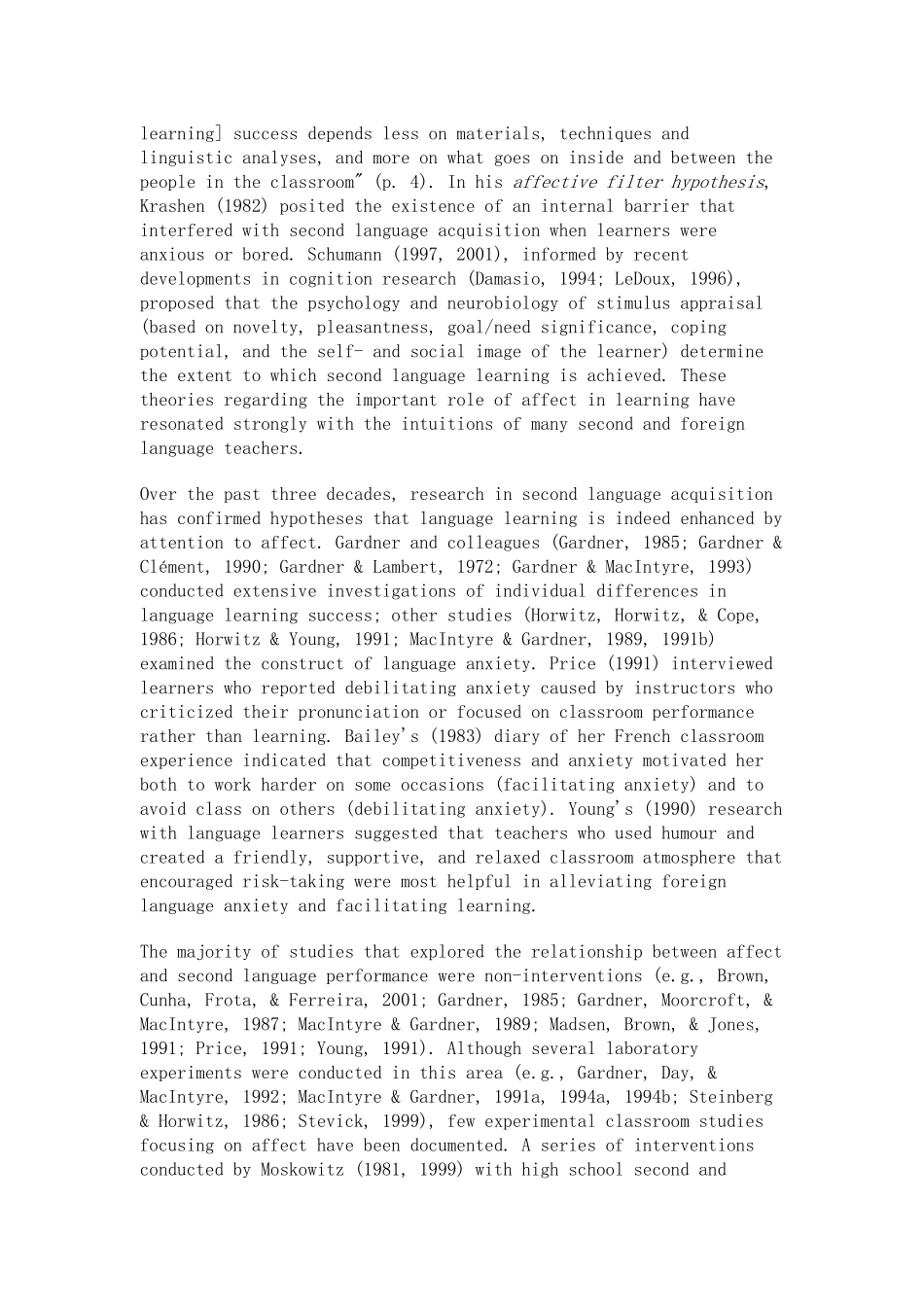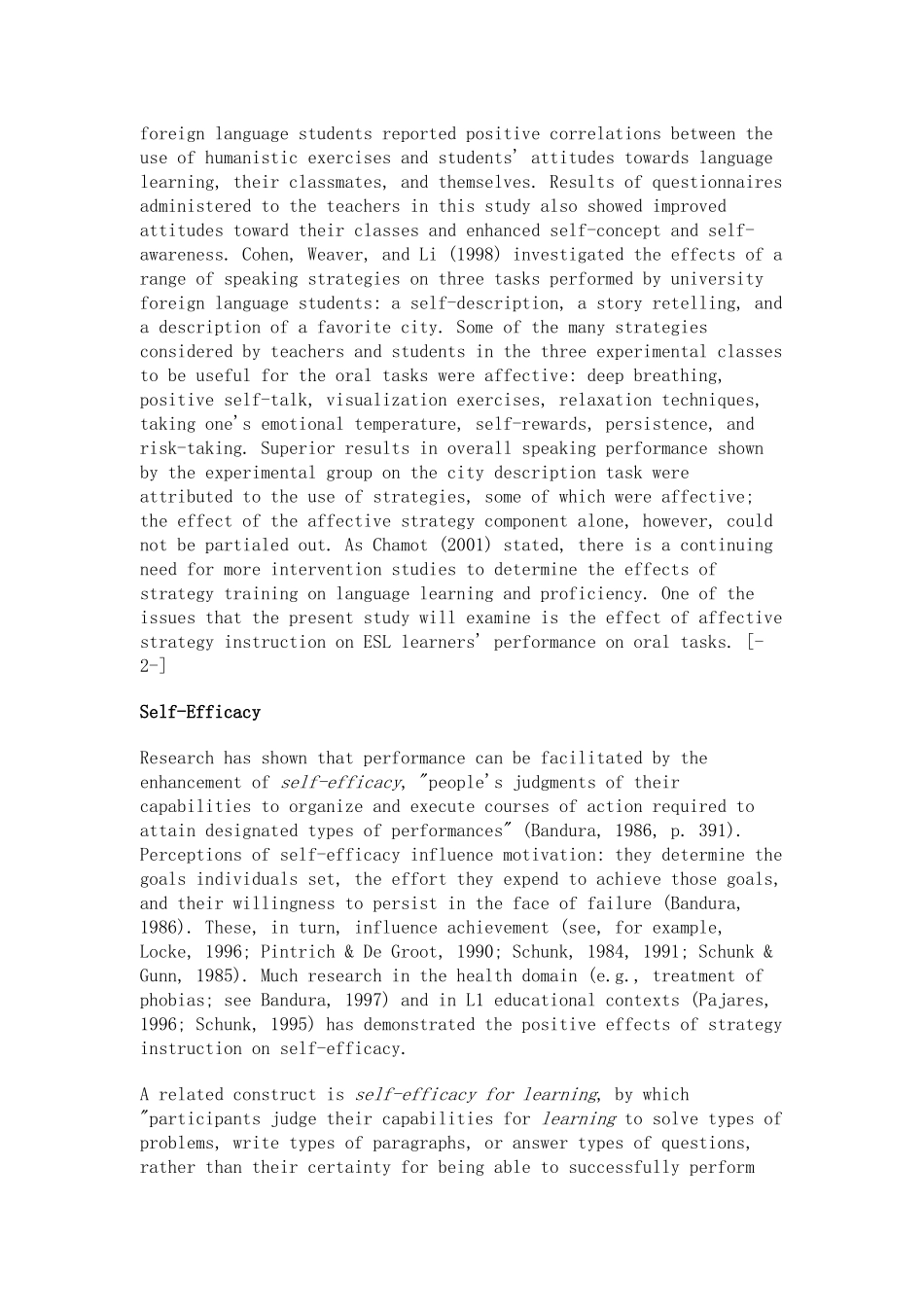The Effects of Affective Strategy Training in the ESL ClassroomAbstractThis paper presents the findings of an intervention designed to examine the effects of affective strategy instruction on measures of second language proficiency and of self-efficacy. The participants in this study were 31 adult intermediate-level ESL learners registered in a full-time ESL program in a post-secondary institution in Canada. Two classes participated in this study; one received 12 hours of affective strategy training, and the second served as a comparison group. At Weeks 1, 5, 10, and 15, learners completed two sets of oral information-gap tasks: picture story narratives and object descriptions. Prior to each task, they provided scalar judgments of their ability to provide accurate descriptions. The data from the self-report questionnaires and from the transcripts of the audio-tapes were used to analyse students' perceptions of self-efficacy and their second language performance. The results are discussed with respect to the context in which the training was conducted. IntroductionDifferential success in second or foreign language learning has been attributed to individual differences such as intelligence, aptitude, personality, motivation, and anxiety. The development of humanistic psychology, which sought to establish a holistic approach to learners, led to an increased focus on individuals' emotions and feelings. Maslow (1971), for instance, posited that cognitive and aesthetic goals leading to self-actualization could not be achieved unless human physiological needs, the need for safety and security, the need for belonging, and the need for self-esteem had been satisfied. Rogers (1969) argued that learning should be experiential an...


